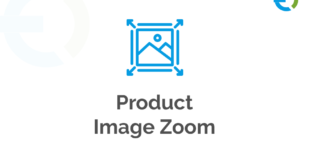Starting a new business is an exciting journey filled with opportunities and challenges. One of the most critical aspects of launching a successful startup is establishing a strong online presence. A well-designed website can be a game-changer, helping to attract customers, build credibility, and generate revenue. In this article, we will explore the essential aspects of website development services for startups and what you need to know to make informed decisions.
Understanding Your Business Needs
Before diving into website development, startups must clearly define their business goals and target audience. Understanding your needs will help you choose the right design, features, and functionalities that align with your business objectives. Consider the following questions:
- What is the primary purpose of your website? (e.g., e-commerce, lead generation, brand awareness)
- Who is your target audience?
- What key features are essential for your business (e.g., online booking, payment gateways, content management system)?
Choosing the Right Development Approach
Startups have several options when it comes to website development, including:
- Custom Development: Building a website from scratch tailored to your unique needs. This offers flexibility but can be expensive.
- Website Builders: Platforms like Wix, Squarespace, and Shopify offer user-friendly drag-and-drop functionality, ideal for startups with limited budgets.
- Content Management Systems (CMS): WordPress, Joomla, and Drupal provide scalable solutions with extensive customization options.
The right choice depends on your budget, technical expertise, and long-term business goals.
Key Website Features for Startups
An effective startup website should include the following essential features:
- Responsive Design: Ensures your site looks and functions well on all devices.
- SEO Optimization: Helps improve visibility on search engines.
- User-Friendly Navigation: Enhances the overall user experience.
- Secure Payment Options: Crucial for e-commerce websites.
- Fast Loading Speed: Reduces bounce rates and improves engagement.
- Social Media Integration: Connects your website with social platforms to enhance brand presence.
- Analytics and Tracking: Provides insights into user behavior to optimize performance.
Budget Considerations
Budgeting for website development is crucial for startups. Costs can vary depending on the complexity of the website, the platform used, and additional features required. Consider the following expenses:
- Domain Name and Hosting: Yearly costs can range from $10 to $100 for domains and $50 to $500 for hosting.
- Design and Development: A basic website can cost $1,000 to $5,000, while more complex sites can exceed $10,000.
- Maintenance and Updates: Ongoing costs to keep your site running smoothly.
It’s essential to prioritize features that align with your business needs while keeping costs in check.
Finding the Right Website Development Partner
Choosing the right web development agency or freelancer is critical for startup success. Look for partners with:
- Proven experience in working with startups.
- Positive client reviews and portfolios.
- Transparent pricing and timelines.
- Strong communication and support.
Conduct thorough research and request proposals from multiple providers before making a decision.
Importance of SEO and Digital Marketing
A great website is only effective if potential customers can find it. Search Engine Optimization (SEO) and digital marketing strategies, such as social media marketing and pay-per-click (PPC) advertising, are essential for driving traffic to your website. Consider investing in SEO services to improve rankings and increase visibility.
Scalability and Future Growth
As your startup grows, your website should be able to scale accordingly. Choose technologies and platforms that allow for future expansions, such as adding new features, increasing bandwidth, or integrating third-party services.
Security and Compliance
Ensuring your website is secure and complies with relevant regulations (such as GDPR or CCPA) is crucial. Implement SSL certificates, strong password policies, and data encryption to protect customer information.
Testing and Launch
Before launching your website, thorough testing is necessary to identify and fix any bugs or issues. Perform usability testing, compatibility testing, and performance testing to ensure a smooth user experience.
Ongoing Maintenance and Support
Website development is not a one-time project. Regular updates, backups, and performance optimization are necessary to keep your website running efficiently and securely.
Conclusion
Website development is a critical investment for any startup. By understanding your business needs, choosing the right development approach, and focusing on essential features, you can create a website that drives success. Partnering with the right development team and focusing on SEO and digital marketing strategies will ensure your online presence remains strong and competitive. With careful planning and execution, your website can become a powerful tool in achieving your startup goals.
 Our Gateway to Insightful Blogging Exploring Ideas, Sharing Knowledge, Inspiring Minds
Our Gateway to Insightful Blogging Exploring Ideas, Sharing Knowledge, Inspiring Minds



